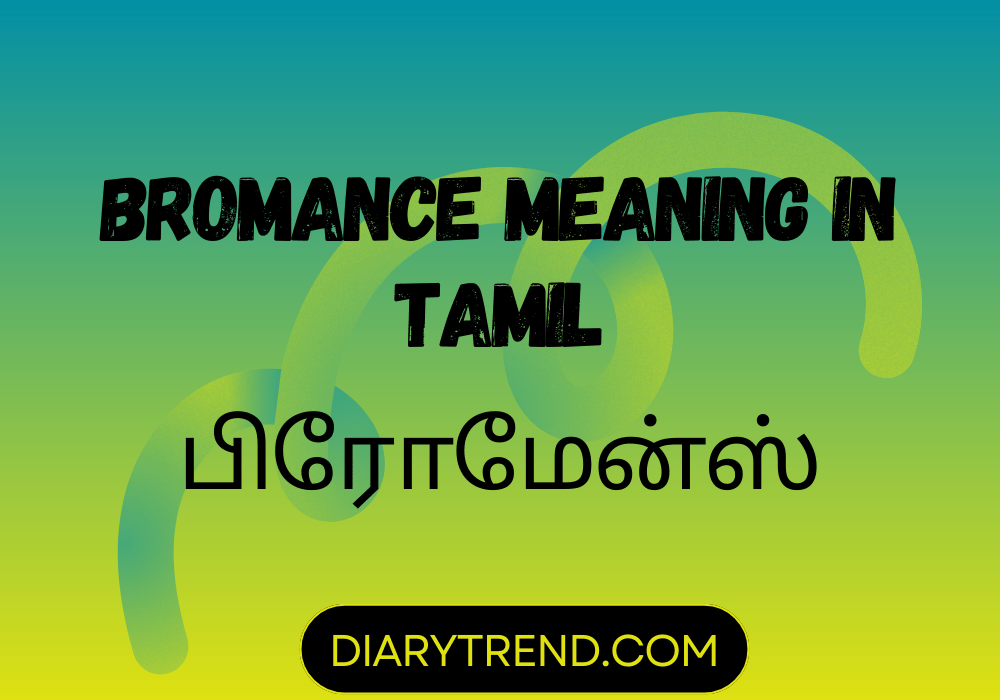In recent years, the term “bromance” has gained widespread popularity, transcending cultural boundaries and finding a place in diverse languages, including Tamil where it is referred to as “பிரோமேன்ஸ்” (Brōmēns). Originating from a blend of “brother” and “romance,” bromance describes a deep, platonic relationship between men. This article delves into the essence of bromance, its significance in contemporary society, and its representation in various cultural contexts, with a particular focus on the Tamil-speaking community.
The Essence of Bromance
At its core, bromance is characterized by an emotional depth and intimacy that is traditionally not associated with male friendships. It goes beyond the conventional boundaries of casual friendship, embodying a bond marked by trust, loyalty, and a profound understanding. Bromances are often marked by shared interests, mutual respect, and an unspoken agreement of support and camaraderie.
Cultural Perception and Acceptance
In many cultures, the concept of bromance challenges traditional notions of masculinity. Societies with rigid gender norms have often viewed emotional openness and vulnerability among men with skepticism. However, the growing acceptance of bromance signifies a positive shift towards a broader, more inclusive understanding of male relationships. It encourages emotional expression and connection, which are crucial for mental well-being.
In the Tamil context, as in many parts of the world, the acceptance of bromance can be seen as part of a larger cultural evolution. Tamil cinema, for instance, often showcases strong male friendships, reflecting the societal acceptance and admiration of deep bonds between men.
Bromance in Media and Entertainment
The portrayal of bromance in media has played a significant role in normalizing these relationships. Films, television shows, and books frequently depict bromances, resonating with audiences and reflecting the changing dynamics of male friendships. In Tamil cinema, movies like “Nanban” and “Kaakha Kaakha” have portrayed strong male friendships, weaving bromance seamlessly into their narratives.
Psychological Perspective
From a psychological viewpoint, bromances can significantly impact men’s mental health. Such friendships provide emotional support, reduce stress, and contribute to overall happiness. In a society where men are often discouraged from expressing vulnerability, bromances offer a safe space for emotional expression and support.
Challenges and Misconceptions
Despite its growing acceptance, bromance faces its share of challenges and misconceptions. One common misunderstanding is equating bromance with romantic or sexual interest, which undermines the platonic nature of these relationships. Additionally, in some circles, there is still a stigma attached to men displaying emotional vulnerability with each other, rooted in outdated perceptions of masculinity.
Conclusion
In conclusion, bromance is more than just a trendy term; it represents a shift in how male friendships are viewed and experienced. In embracing bromances, societies, including the Tamil-speaking communities, are acknowledging the importance of emotional depth and vulnerability in male relationships. This acceptance not only enriches individual lives but also contributes to a more emotionally open and connected society. As we continue to evolve in our understanding of human relationships, bromance stands as a testament to the changing times and the enduring power of deep, platonic friendships.
